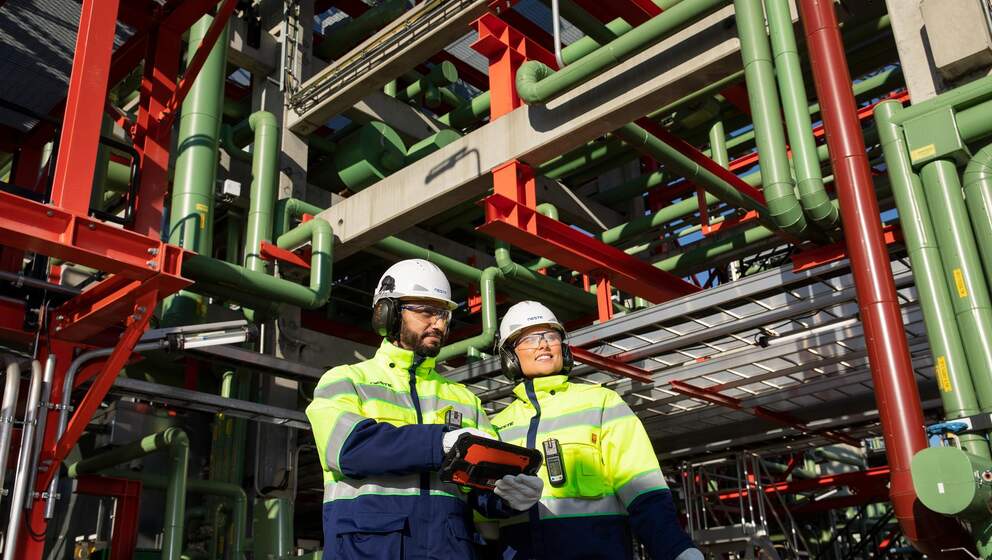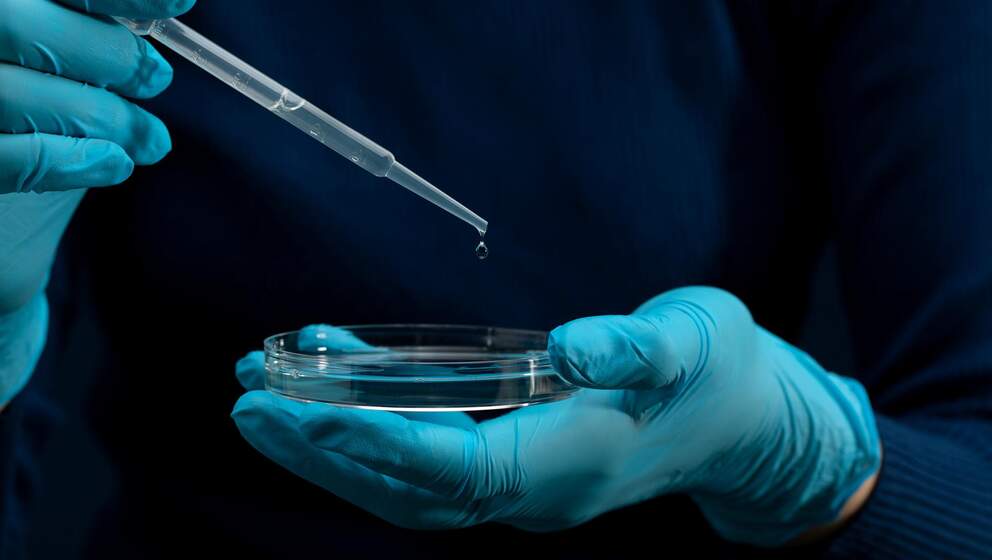Sustainable Transformation of Polymer and Chemical Industry in South Korea is an Irresistible Force

Climate change is a global crisis. How we tackle climate change in this decade will determine the remaining leeway for the upcoming ones. It is everyone’s business to take action now. The chemical industry in South Korea had a strong footprint globally(1). And it still contributes significantly to the South Korean economy today. At the same time, it contributes heavily to the global greenhouse gas emissions (GHG). South Korean companies should think how to turn climate change challenges into a business opportunity and maintain their competitiveness in the global market. In this interview, Jeroen Verhoeven, Neste’s Vice President for Production Partner Management at Renewable Polymers and Chemicals Business Unit explains why and what the chemical industry and its downstream customers could do in order to achieve a successful transformation.

Jeroen, why should companies in the chemicals industry in South Korea consider sustainable transformation?
Globally the results of climate change become more visible. Temperatures are rising and more and more extreme weather events are taking place. This summer, we saw forest fires in Europe and the US, heavy floods in Germany and China. Last year, according to the South Korean Meteorological Administration, South Korea saw the longest monsoon period since 1973. The heavy rainfalls and typhoons claimed 46 lives and resulted in damages to real estate, worth 1.25 trillion won, which is more than 3 times higher than the average over the 2010-19 period. So, the impact of climate change becomes much more visible and together with our partners like LG Chem, we need to drive transformation right now!
South Korea was the eight-biggest carbon emitter globally in 2020, and the fourth in Asia after China, India and Japan (2). In order to contribute to tackling the global warming challenge, South Korea has committed to carbon neutrality by 2050. Although 30 years time might sound like a lot, it is not for industries with large facilities and established processes.
The Chemical industry relies heavily on virgin fossil resources. Its contribution to the GHG emissions is significant - and so is its need to contribute to the climate targets. But companies in the industry do not have to see this merely as a threat. Instead they could see these targets as a business opportunity if they are bold enough to embrace them. The key is to not consider sustainability a necessary evil, but instead make it the core of the business. It is not exaggerated to say that today’s frontrunners in sustainability will be tomorrow’s frontrunners in profitable growth.
How could companies in the chemical industry in South Korea start the transformation?
The big advantage we have in our industry is the availability of technologies. While other sectors are desperately working on the development of sustainable solutions and new technologies, these already exist in the chemical industry. So it’s less a technological challenge, but a challenge of will and commitment. Fossil feedstocks can already today be replaced with renewable and circular alternatives.
The elephant in the room is to establish a market for these solutions and ramp up the business with these sustainable products. The key to do so lies with close collaborations and partnerships between the players along the value chain: from feedstock providers to crackers, from distributors to conveyors and brand owners.
In your view, how can Neste support South Korea in this transformation?
Neste was established in 1948 as a traditional oil refining company. But it has successfully transformed itself to be a global leader in renewable diesel and sustainable aviation fuel. To put it bluntly: We have been there ourselves. And our story shows that a successful transformation towards sustainability is possible.
Furthermore, we are part of the chemical value chain ourselves, offering renewable and recycled feedstock for the production of polymers. Our Neste RE solution is a drop-in replacement for fossil feedstock. It is fully compatible with existing production and recycling infrastructures. And the most important part is that Neste RE can be the base for a variety of chemicals and polymers, including challenging polymer types with identical quality to conventional plastics.
In the South Korean market, in November 2020, Neste and LG Chem joined forces, announcing a long-term strategic partnership to develop and grow the bio-polymers and bio-chemicals market in Korea and beyond. Neste provides renewable hydrocarbons to LG Chem for its manufacturing of polymers and chemicals.
On top of that, Neste is exploring partnerships with other South Korea companies. In line with our vision: ‘Leading the way towards a sustainable future together’, we firmly believe that via collaborations, we can achieve more.

What has been achieved via this partnership with LG Chem?
What started as an idea has quickly become a business model leading to strong results. In April 2021, LG Chem reported the first production of nine different polymers in two plants using Neste’s renewable hydrocarbons. In August 2021, LG Chem reported the first export of Superabsorbent polymers produced out of Neste’s renewable raw materials. And this is just the beginning as we have confidence that this partnership will take us even further in the coming years.
If this article is read by the public in South Korea, what would you like them to know?
To combat climate change, everyone has to play their part. As consumers, we have a lot of power in shaping industries: our buying behaviour is influencing the market. If we make responsible purchase choices and increase the demand for more sustainable products, the market will follow. In fact, we are the driving factor - and every tiny step counts. So let’s join forces and work together to create a healthier planet for our children.
Note: on 8 September 2021, Neste’s Vice President for Production Partner Management at Renewable Polymers and Chemicals Business Unit, Jeroen Verhoeven, was invited to speak at the Herald Business Online Forum 2021, talking about Neste’s transformation as well as how we see the transformation of the chemical industry to be more sustainable in South Korea and beyond. This article serves as a summary of Jeroen’s speech.
About Neste
Neste creates solutions for combating climate change and accelerating a shift to a circular economy. We refine waste, residues and innovative raw materials such as used cooking oil, animal fats wastes into renewable fuels and sustainable feedstock for plastics and other materials. We are the world’s leading producer of renewable diesel and sustainable aviation fuel, developing chemical recycling to combat the plastic waste challenge. At Neste, everyone serves for one purpose. That is: creating a healthier planet for our children.
(1) Mckinsey, Creating a strong future for South Korea’s chemicals companies, 25 June 2021.
(2) Financial Times, South Korea vows ‘bold’ climate policy after accusations of inaction, 17 May 2021.


